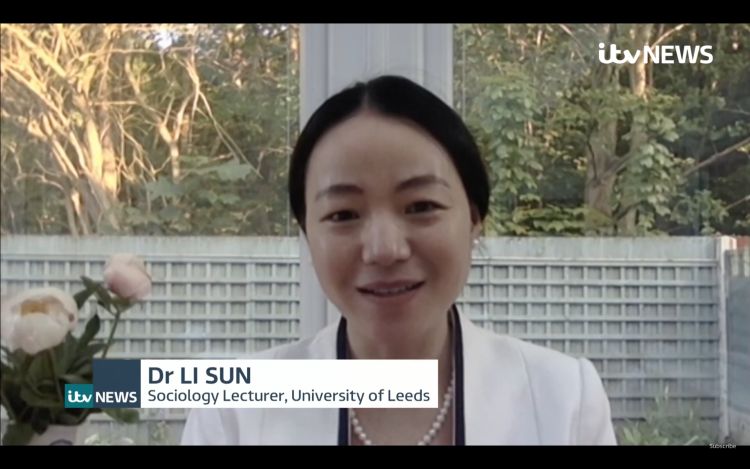Dr Li Sun interviewed by ITV news on China’s three-child policy

On 31 May 2021, the Chinese government announced the three-child policy, allowing married couples in China to have three children.
Dr Li Sun, Lecturer in Sociology and Social Policy, spoke to ITV News following the Chinese government’s decision to raise the limit on the number of children married couples are allowed to have. A one-child policy, implemented 1979, was replaced in 2016 with an upper limit of two children. Now the government has raised this limit to three.
The announcement of the three-child policy followed the release of a recent once-in-a-decade census, and responded to the demographical trends of the declining birthrate and aging population in China.
An important factor in population growth is the total fertility rate (TFR). The UN calls a rate of 2.1 ‘replacement-level fertility’, indicating that, on average, if a child-bearing person were to have 2.1 children, each generation would exactly replace itself. The current fertilty rate in China is 1.3, which is below the replacement rate of 2.1.
Further, in 2020, 264 million Chinese people were aged 60 and above, accounting for 18.7% of the total population.
Dr Sun addresses the importance of social welfare expansion, given that the economic burden of raising children is high for ordinary Chinese households. During the ITV news interview, she refers to inadequate maternity leave, childcare, and pre-school education as constraints on a person’s decision on the number of children they will have.




